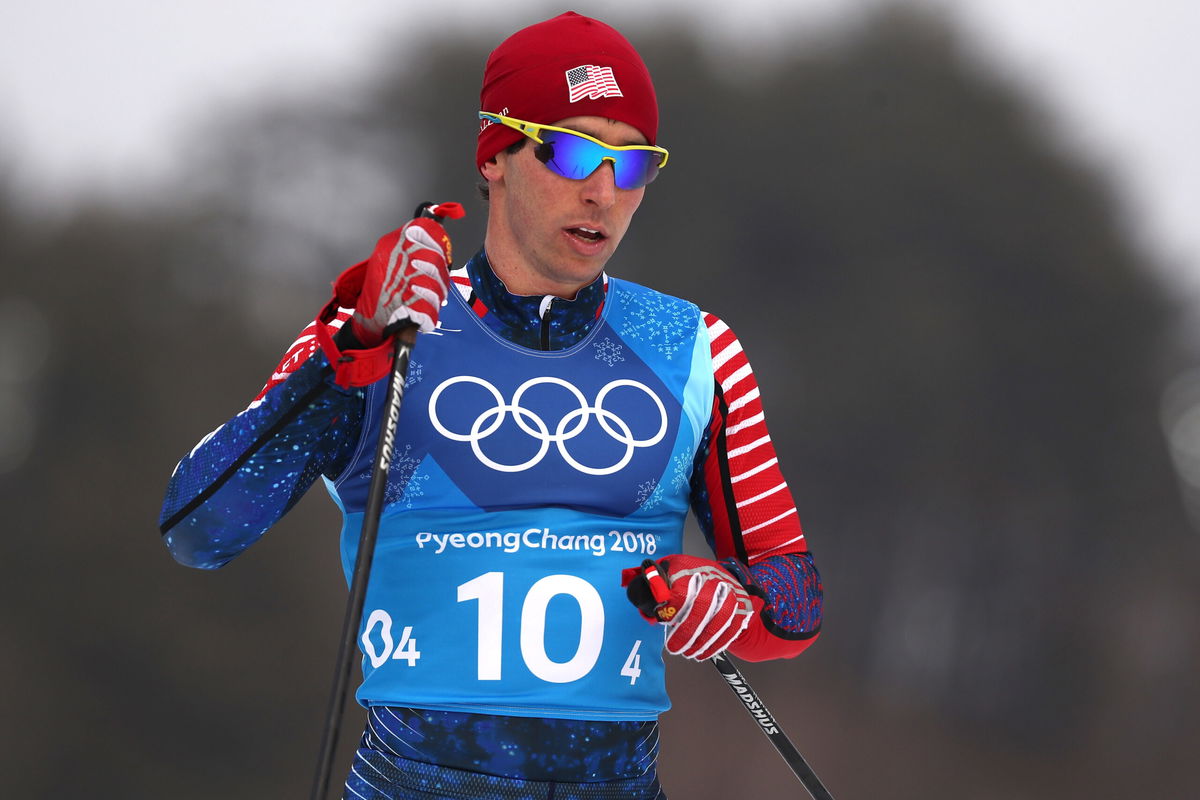Cookbook: Secrets behind what fuels Olympic athletes are helping raise awareness of domestic abuse in the US

Noah Hoffman would eat around 8
By Ben Church, CNN Video produced by Finn McSkimming, CNN
It’s the fuel that powers performance — few things are as important to an elite athlete as their diet.
Eating the right nutrients is critical to success, but so is the odd indulgent meal to keep spirits high through grueling training sessions.
And as the Winter Olympics comes to an end, a new cookbook provides a glimpse into what makes top athletes tick.
The Winning Recipes cookbook is the idea of the Purple Project, an organization that looks to support domestic abuse survivors, which has worked over the past year to create a gastronomic tome made up of the favorite recipes from some of the US’ best Olympic athletes.
“The Purple Project reached out to me out of the blue,” retired Olympic skier Noah Hoffman, who was invited to take part, told CNN Sport.
“At first, I thought, ‘That’s a little strange, I’m not a chef. I don’t know if I can contribute to a cookbook.’
“But, of course, I love to cook. I think everybody loves to eat and I love to eat, and I have favorite recipes.
“I actually sat down with my partner and we came up with the recipe together and made it once or twice to make sure that we had it correct.”
Hoffman’s offering of ‘Berry Dutch Baby’ can be found in the breakfast section, but even he admits it’s designed for someone with a very sweet tooth.
The recipe, which involves fried frozen berries underneath a baked doughy pastry, was a favorite of Hoffman’s during his career but only on the odd occasion.
“Certainly, only on days off,” he said laughing. “It’s a little bit time intensive and maybe not the best training fuel, but a nice treat on a recovery day.”
READ: Canada-born Humphries wins gold medal for US after filing harassment complaint
8,000 calories per day
Hoffman retired from competitive skiing after the PyeongChang Games in 2018 but enjoyed a long career which involved two Winter Olympic Games.
He specialized in endurance events and would push his body “to the limit” during training in order to reap the rewards come race day.
Hoffman says he would consume food “endlessly” during training blocks.
He even remembers sitting down to eat over one pound of pasta for lunch.
“There was a time in my early 20s, when I was still growing, that I was eating at least 8,000 calories a day. It’s an incredible amount of food,” he said, before remembering some of the tricks he used to boost the calorie intake.
“So you cook a whole box of pasta and you eat it all in one sitting for lunch. It’s just astounding.
“I don’t advise that for any young athlete, but I couldn’t fill myself up. I was just eating constantly. It was wild.”
Hoffman’s eating habits changed slightly as he became more successful and he worked with a dietitian for much of his career.
The US ski team employed nutritionists to help its athletes reach their optimal levels of fitness and Hoffman still looks after what he eats even after retiring from competitive skiing.
READ: Eileen Gu reveals mom helped her turn freeski slopestyle final around
‘Athletes are really wanting to give back’
He says dietary demands have changed for competitors over the years and so has the role of athletes in general.
Like many have done since the pandemic, Hoffman wants to use his platform as an athlete to change society for the better.
He confesses to not knowing much about domestic abuse rates prior to working on this initiative but says he’s been “humbled” to learn more about the work the Purple Project is doing.
According to the organization, nearly 20 people per minute are physically abused by an intimate partner in the US, so the Purple Project looks to provide aid and support for emergency domestic violence shelters.
“I do think the role of an athlete has changed, and I think that’s kind of part of a societal change where politics seem to be a little more central and, unfortunately, a little more divided as a whole.
“So I think that as that happens, athletes like everybody feel the need to speak out and really feel passionately and want to see the world a better place.
“So athletes are really wanting to give back and are understanding that they have a lot of leverage and a lot of power to help organizations that they want to help.
“So I was just really honored to be included in this project … and getting to learn about the Purple Project and all the work that they do.”
The-CNN-Wire
™ & © 2022 Cable News Network, Inc., a WarnerMedia Company. All rights reserved.